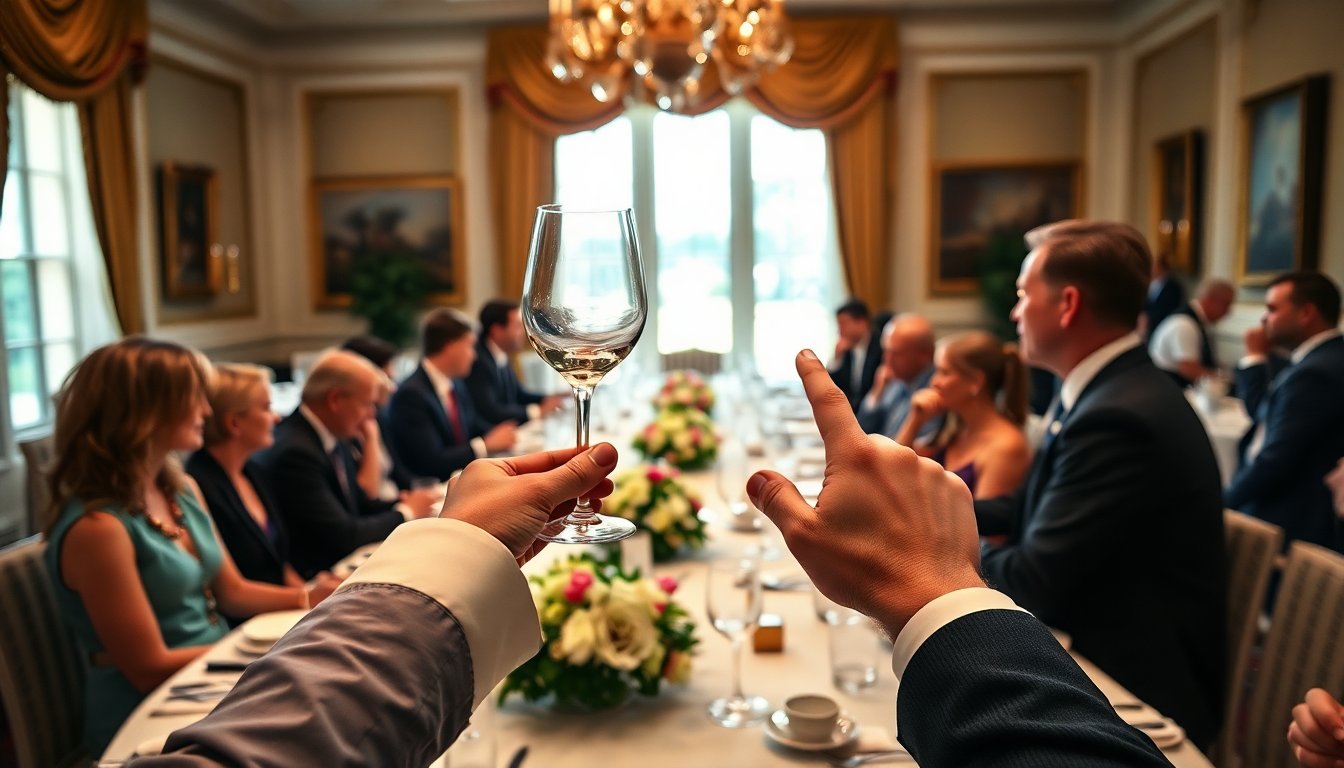Table of Contents
In a remarkable gathering at the White House, the air was filled with a sense of significance as global personalities converged for a dinner hosted by President Donald Trump. Among the attendees were renowned football star Cristiano Ronaldo and tech mogul Elon Musk, marking a moment that intertwined the worlds of sports and politics.
This dinner, held to honor Saudi Arabia’s Crown Prince Mohammed bin Salman, showcased the increasing diplomatic relations between the United States and Saudi Arabia, particularly in the realm of sports. Ronaldo, who currently plays for Al Nassr in the Saudi Pro League, was positioned prominently at the dining table, indicating the high regard in which he is held.
Ronaldo’s impact on Saudi sports
At the age of 40, Ronaldo has transitioned into a pivotal role in Saudi football. His contract with Al Nassr, valued at over $200 million annually, underscores the kingdom’s ambition to elevate its profile in global sports. Following a storied career in Europe, Ronaldo’s move to Saudi Arabia exemplifies a trend where high-profile athletes are attracted by lucrative deals in a league that aims to modernize and diversify.
The allure of the Saudi Pro League
Ronaldo’s presence in the Saudi Pro League has not only boosted his brand but has also paved the way for other superstars to join. Players like Neymar and Karim Benzema have followed suit, drawn by the financial prospects and the opportunity to contribute to a burgeoning sports scene. This influx of talent highlights Saudi Arabia’s strategy to position itself as a competitive player in the global sports arena.
Political undertones and global connections
Trump’s acknowledgment of Ronaldo during the dinner illuminated the intersection of sports and politics. The President remarked about his son Barron’s admiration for the footballer, indicating Ronaldo’s global appeal. This event was not merely a social gathering; it served as a platform for reinforcing the strategic alliance between the U.S. and Saudi Arabia, which Trump referred to as a “major non-NATO ally.”
Concerns over human rights and sportswashing
However, the dinner was not without its controversies. Critics, including human rights advocates, have accused Saudi Arabia of attempting to “sportswash” its tarnished image by investing heavily in high-profile sporting events and personalities. According to Jules Boykoff, a political analyst, Ronaldo’s involvement in Saudi football places him at the center of these allegations, as he inadvertently aids in diverting attention from the kingdom’s human rights violations.
Moreover, the backdrop of the Saudi Crown Prince’s controversial history, particularly concerning the murder of journalist Jamal Khashoggi, adds layers of complexity to this diplomatic engagement. Trump’s defense of the Saudi regime, despite the troubling findings from the CIA, reflects the intertwining of business interests and political relationships.
The future of sports and diplomacy
As Saudi Arabia continues to invest in sports and tourism, the country is set to host the 2034 FIFA World Cup, further solidifying its ambitions on the global stage. Ronaldo has expressed his excitement for this event, viewing it as a significant milestone for both his career and the country’s aspirations. His recent public statements have highlighted his commitment to promoting Saudi Arabia’s development projects and sports initiatives.
In this evolving landscape, figures like Ronaldo and Musk represent not just athletic prowess and technological innovation, but also the intricate web of international relations that shape our world today. Their participation in events like the White House dinner exemplifies how sports figures can influence political narratives and public perception.
Ultimately, as the lines between sports, business, and politics continue to blur, the implications of such gatherings extend far beyond the dining table, reflecting broader global dynamics and the quest for influence.


